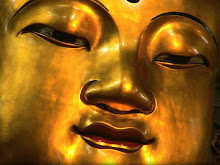Religious psychosis is a phenomenon that occurs in all civilizations; in some cases it actually forms the basis of a religious tradition. In Japan and the Muslim world, the ideal of the suicidal martyr forms a key religious component. In the Philippines, for example, on Easter, self-flagellation and crucifixion are routinely practiced. Similarly, self-mutilation rituals are common in Islamic cultures. Even in Buddhism, monks burn themselves alive or burn off a finger to show their devotion to Buddha, practices which the Dalai Lama regards as self-destructive. Religious psychosis is a self-destructive aberration that results in warfare, suicide, extreme materialism and ideologies that result in permanent conflict.
 One of the main aspects of religious psychosis is shamanic in that extreme heat, cold, sensory deprivation, and flagellation can produce altered states of consciousness, which can produce spiritual ecstasy. Many researchers of shamanism describe it as a collection of techniques resulting in states of consciousness that enable the practitioner to access information from upper, middle and lower world dimensions. The basis of both the Chinese and Indian medical systems is that the preservation and health of the body is a prerequisite for achieving full-brain activation; yet there have been many individuals who attempted to achieve spiritual knowledge through extreme ascetic methods and only succeeded in starving to death. Religious psychosis usually results in paranoid states, which separate and fragment cultural views in terms of a permanent conflict between good and evil. Religious psychosis can also be seen in institutions and practices that are destructive, or incompatible with modern concepts ofhuman and animal rights.
One of the main aspects of religious psychosis is shamanic in that extreme heat, cold, sensory deprivation, and flagellation can produce altered states of consciousness, which can produce spiritual ecstasy. Many researchers of shamanism describe it as a collection of techniques resulting in states of consciousness that enable the practitioner to access information from upper, middle and lower world dimensions. The basis of both the Chinese and Indian medical systems is that the preservation and health of the body is a prerequisite for achieving full-brain activation; yet there have been many individuals who attempted to achieve spiritual knowledge through extreme ascetic methods and only succeeded in starving to death. Religious psychosis usually results in paranoid states, which separate and fragment cultural views in terms of a permanent conflict between good and evil. Religious psychosis can also be seen in institutions and practices that are destructive, or incompatible with modern concepts ofhuman and animal rights.
The Tibetan traditions describe the religious systems that do not result in whole- brain activation within one lifetime as being essentially incomplete in their understanding of the human mind/body continuum and its fundamental energetic structure. A correct understanding of Asian medical theory results in a harmonious, altruistic world-view based on mutual cooperation and respect for nature, resulting in greatly enhanced health and well-being. The perpetuation of an individual family or civilization is dependent on avoiding warfare or other forms of religious psychosis, which prevent the successful reproduction of a genetic line.

